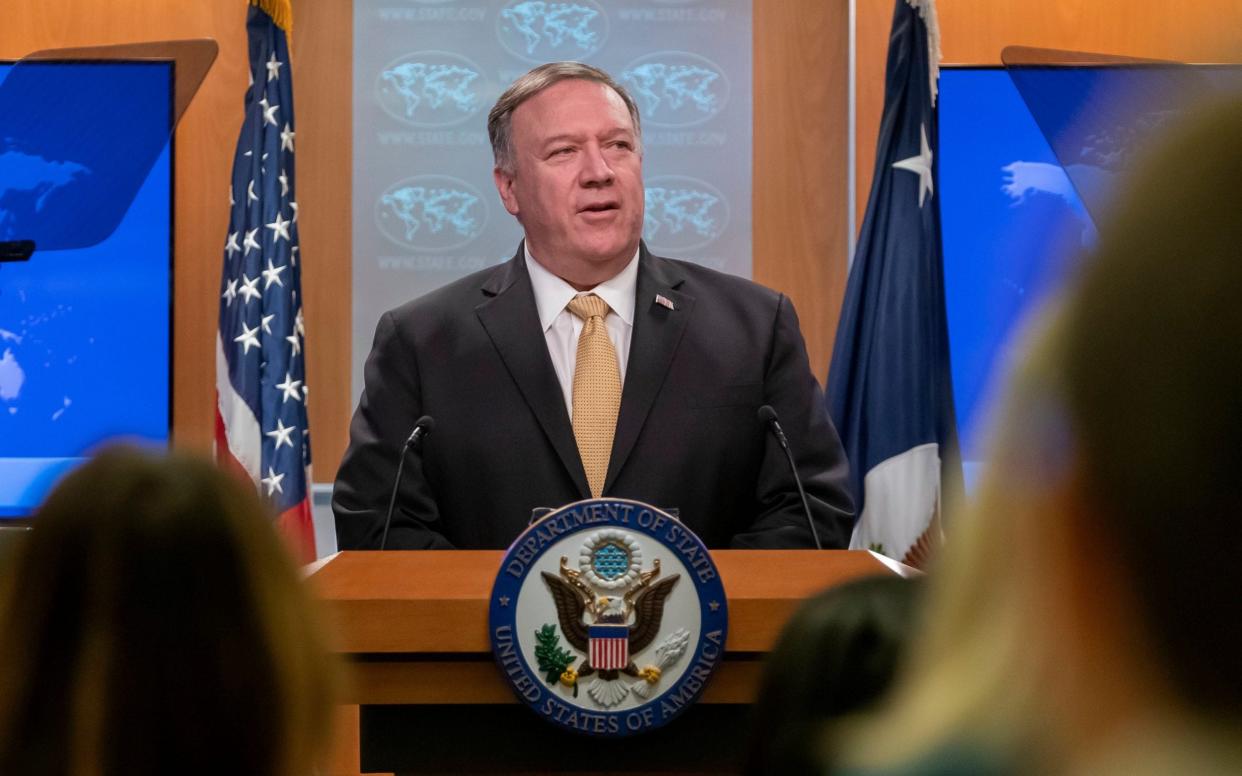Israeli settlements on occupied Palestinian land don't violate international law, US announces

The United States on Monday effectively backed Israel's right to build Jewish settlements on the occupied West Bank by abandoning its four-decade position that they were "inconsistent with international law."
The announcement by Mike Pompeo, the Secretary of State, was a victory for Benjamin Netanyahu, the Israeli prime minister, who is struggling to remain in power after two inconclusive Israeli elections this year, and a defeat for the Palestinians.
Mr Pompeo said US statements about the settlements on the West Bank - which Israel captured during a 1967 war - had been inconsistent, saying Democrat President Jimmy Carter in 1978 found they were not consistent with international law and Republican President Ronald Reagan in 1981 said he did not view them as inherently illegal.
"The establishment of Israeli civilian settlements is not, per se, inconsistent with international law," Mr Pompeo told reporters at the State Department, drawing criticism from a senior Palestinian figure even before his announcement.

"Another blow to international law, justice and peace," Hanan Ashrawi, a veteran Palestinian negotiator and member of the Palestine Liberation Organization's Executive Committee, said on Twitter ahead of Mr Pompeo's statement.
Mr Netanyahu said the decision "rights a historical wrong".
The announcement marked the third major instance in which the Trump administration has sided with Israel and against stances taken by the Palestinians and Arab states even before unveiling its long-delayed Israeli-Palestinian peace plan.
In 2017 Donald Trump recognised Jerusalem as the capital of Israel and, in 2018, the United States formally opened an embassy in the city.

US policy had previously been that the status of Jerusalem was to be decided by the parties to the conflict.
And in March, Mr Trump recognised Israel’s 1981 annexation of the Golan Heights in a boost for Mr Netanyahu that prompted a sharp response from Syria, which once held the strategic land.
Mr Trump's move might have been designed to help Mr Netanyahu as he struggles to stay in power. Israeli politics is deadlocked after two inconclusive elections this year.
Former military chief Benny Gantz's centrist Blue and White party emerged neck and neck with Mr Netanyahu following a September vote, and both leaders have struggled to put together a ruling coalition.

